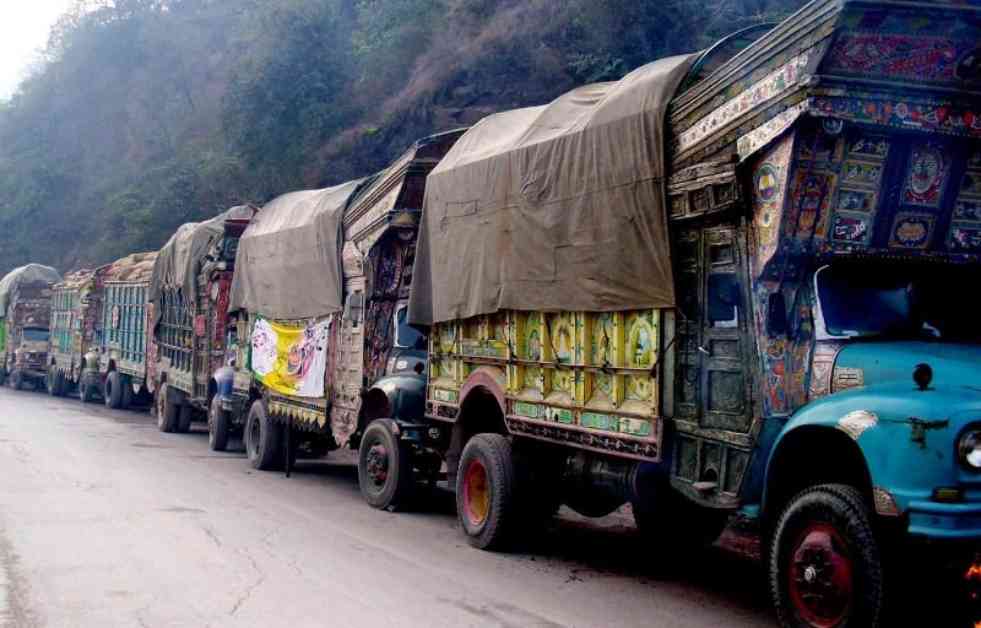A Senate Standing Committee on Finance meeting held in Islamabad highlighted a concerning issue involving 600 Iranian trucks stranded at the Pakistan-Iran border. This situation has resulted in daily losses totaling $2.2 million, prompting Iranian diplomats to raise their grievances and seek immediate action. The committee recommended that Prime Minister Shehbaz Sharif review the matter with the federal cabinet in response to the reinstatement of a bank guarantee requirement for Iranian trucks by Pakistan, despite its removal in a 2008 agreement. This decision has significantly impacted bilateral trade, leading to a decrease in the number of Iranian trucks entering Pakistan and causing drivers to endure prolonged waits at the border.
The Impact on Bilateral Trade and Solutions Proposed by the Senate Panel
In a recent meeting chaired by Senator Saleem Mandviwalla at Parliament House, Iranian diplomats expressed concerns over the adverse effects of Pakistan’s bank guarantee requirement on Iranian trucks. They emphasized that while Pakistan had imposed this condition, Iran had not reciprocated with any restrictions on Pakistani trucks. The enforcement of this requirement has substantially hindered bilateral trade, resulting in a notable decline in the number of Iranian trucks entering Pakistan and causing significant delays for drivers at the border. The diplomats highlighted the importance of free movement in bilateral agreements and stressed the necessity of reopening the Rimdan crossing to facilitate smoother border trade.
Senator Saleem Mandviwalla underscored the significance of the trade relationship between Pakistan and Iran, emphasizing that the imposition of complex customs regulations had stalled transactions. Senator Farooq Naek expressed strong disapproval of the situation, characterizing it as a wakeup call and a national embarrassment. He questioned the need for foreign diplomats to intervene in Pakistan’s trade affairs and criticized the lack of proactive governance in addressing the crisis. Senator Shibli Faraz echoed these sentiments, blaming bureaucratic hurdles for hindering trade and criticizing the Federal Board of Revenue (FBR) for failing to support traders despite the backlog of Iranian trucks at the border.
Customs Officials’ Response and Resolution Steps
Customs officials refuted claims that the bank guarantee requirement was impeding border trade, stating that Iranian trucks were being cleared without such conditions at Taftan. They clarified that goods cleared at Taftan did not necessitate a bank guarantee and accused Iranian traders of attempting to transport duty-free goods from Taftan to Quetta in violation of regulations. The officials emphasized that the bank guarantee requirement applied to bilateral trade transactions, not barter trade, and reiterated that third-party goods could not enter Pakistan through the barter system. Despite these clarifications, the Senate panel decided to escalate the matter to the prime minister, urging the federal cabinet to intervene and resolve the crisis promptly.
In conclusion, the issue of stranded Iranian trucks at the Pakistan-Iran border has underscored the complexities and challenges of bilateral trade relations between the two countries. The Senate panel’s recommendation to involve the prime minister and federal cabinet in addressing this crisis reflects the urgency and gravity of the situation. As Pakistan navigates through these trade challenges, collaborative efforts, effective governance, and diplomatic engagement will be pivotal in finding sustainable solutions to enhance border trade and strengthen bilateral ties.









